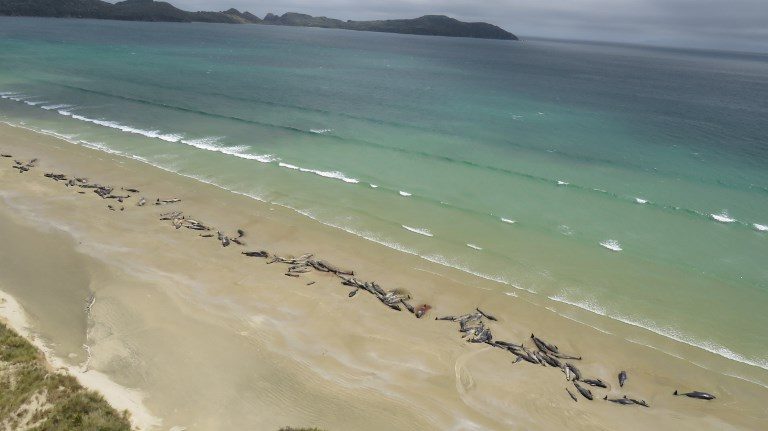SUMMARY
This is AI generated summarization, which may have errors. For context, always refer to the full article.

WELLINGTON, New Zealand – Up to 145 pilot whales have died in a mass stranding on a remote part of a small New Zealand island, authorities said Monday, November 26.
The stranding was discovered by a hiker late Saturday, November 24, on Stewart Island, 30 kilometers (19 miles) off the southern coast of the South Island.
Half of the whales were already dead and due to the condition of the remaining whales and the remote, difficult to access location, the decision was made to euthanize the remainder.
“Sadly, the likelihood of being able to successfully re-float the remaining whales was extremely low,” said Ren Leppens, the Department of Conservation’s operations manager on Stewart Island.
“The remote location, lack of nearby personnel and the whales’ deteriorating condition meant the most humane thing to do was to euthanise.
“However, it’s always a heart-breaking decision to make.”
It was one of four strandings discovered on New Zealand shores over the weekend.
Whale strandings are relatively common on New Zealand shores, with the conservation department responding to an average 85 incidents a year, mostly of single animals.
On Sunday, 10 pygmy killer whales stranded at 90 Mile Beach at the top of the North Island. Two have since died and attempts will be made Tuesday to re-float the survivors.
A sperm whale which beached on nearby Doubtful Bay died overnight on Saturday, while the body of a dead female pygmy sperm whale was found at Ohiwa on the west coast of the North Island.
Exactly why whales and dolphins strand is not fully known but factors can include sickness, navigational error, geographical features, a rapidly falling tide, being chased by a predator, or extreme weather. – Rappler.com
Add a comment
How does this make you feel?
There are no comments yet. Add your comment to start the conversation.